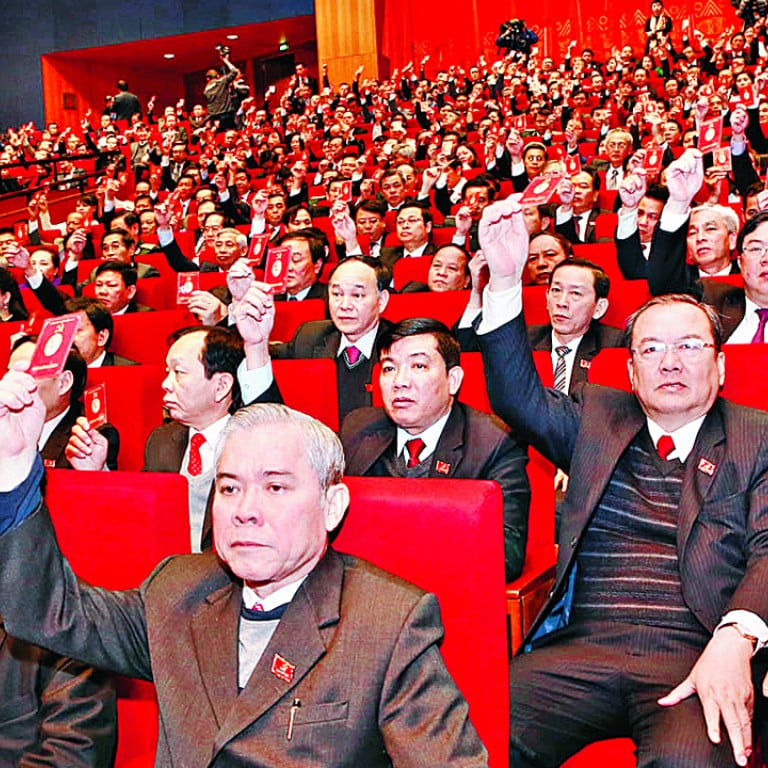
Key questions over security and economic reform await Trong after being re-elected to top job in Vietnam’s ruling party
Reigning party chief tightens hold on power and will serve a second consecutive term after seeing off challenge from outgoing reform-minded prime minister.
In what could be an equivalent of Vietnam’s House of Cards, the country’s Communist Party chief has retained power after an intense political rivalry. As business returns to normal, analysts said there would be little dramatic change in the country’s diplomatic and economic policies.
In Nguyen Phu Trong’s second stint as the party’s general secretary, Hanoi will continue its current course of guarding against China’s maritime ambitions while moving toward a more open, market-oriented economy, analysts said.
The party elites on Wednesday re-elected Trong, 71, for another five years in office, ending months of competition with Prime Minister Nguyen Tan Dung.
Trong’s approach to China is soft on the outside but firm inside
The two men are regularly characterised as occupying opposite ends of the political spectrum, with Trong labelled as a conservative pro-China figure and Dung as a liberal pro-West alternative.
Had Dung won the election, held at the five-yearly party congress that concluded yesterday, he may have accelerated economic reforms and steered Vietnam closer to the West. However, some analysts resisted the suggestion that Trong and Dung represent polar opposites.
“Trong’s approach to China is soft on the outside but firm inside,” said Alexander Vuving, an associate professor at the Asia-Pacific Centre for Security Studies in Honolulu.
“Dung’s approach to China combines tough rhetoric with economic engagement, which has tightened Vietnam’s economic dependence on China.”
Beijing and Hanoi have bickered over territorial disputes in the South China Sea and bilateral ties have nosedived since China towed a giant oil rig into waters within Vietnam’s exclusive economic zone in 2014.
In response, Vietnam has sought to create a bulwark against China by strengthening ties with other powers, in particular the United States. This shift was made all the more apparent by all four of the party’s top leaders visiting the US on separate trips last year.
Even with Trong in power, this trend will be irreversible and the strategic dilemma remains, said Le Hong Hiep, a visiting research fellow at the ISEAS Yusof Ishak Institute in Singapore.
The Vietnamese leadership is now more united than in the past five years
“China is a far more important partner for Vietnam,” Hiep said, emphasising Hanoi’s need for cautious diplomacy.
As Vietnam struggles with this balancing act, public scrutiny internally is likely to be more intense than ever. The power struggle between Trong and Dung has had the consequence of shedding greater light on the country’s often secretive party politics.
With the competition between Trong and Dung now nullified, the country’s leaders have the opportunity to present a unified front in the event of further provocation from Beijing, Vuving said.
“The Vietnamese leadership is now more united than in the past five years,” he said.
Trong is expected to continue with the anti-corruption campaign he began in his previous term, Vuving said. But, even with Dung predicted to retire, Trong is likely to face pressure to continue with the economic reforms spearheaded by the outgoing prime minister. It means the Trans-Pacific Partnership, which requires Vietnam to further open up its market, will likely be ratified, Hiep said.
